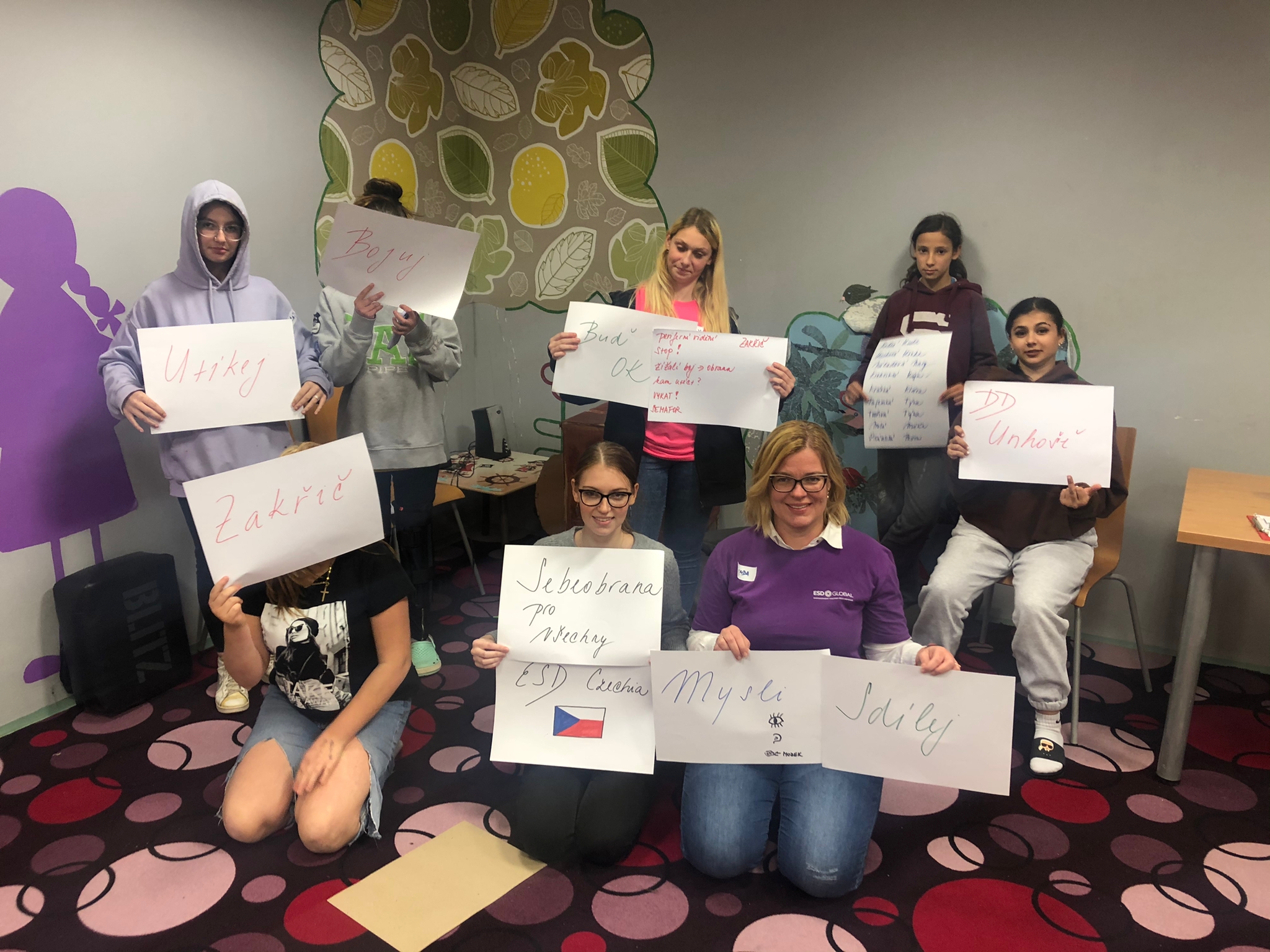Author: Zuzana Šrámková
ESD is an acronym for Empowerment Self Defence. It is a concept that originated in Israel, but in recent decades it has been gaining fans all over the world. In the Czech Republic it is promoted by Linda Štucbartová, the first certified lecturer of this technique in the Czech Republic.
Linda is a remarkable woman with an impressive personal story. She has studied in Oxford and Geneva, has had an admirable professional career and is the author of the book “Ambassadors Without Diplomatic Passports”.
“When I talk about ESD, I try to point out that the main goal of this approach is not to teach someone to kick an adversary,” Linda explains. “Physical self-defense techniques are also part of the workshops, but the primary focus is on prevention – building self-esteem, setting or re-establishing healthy personal boundaries. ESD is self-defense for everyone. And when I say for everyone, I mean for everyone.”
When we met Linda, we could immediately picture her at a workshop in children’s homes. And to our delight, Linda agreed.
“Self-defense courses are very important, especially for girls from these institutions,” says Petra Erguvanli, C4C’s Springboard to Life coordinator. “Linda’s workshops are focused on violence prevention. My mother personally taught me these things, often giving me advice on how to avoid danger. Girls from orphanages rarely learn how to look out for themselves, how to say NO, how to be confident and assertive.”
“Workshops so far have been held in two homes, in Ledce and Unhosť. They are set up so that the children learn playfully through various games and divided into two interrelated parts,” says Petra. “In the first session, the children learn the main principles of self-defence, and are given the task of practically applying them in everyday life. The second session is used to review what they have learnt, share how each technique has worked for them and possibly add something new to their knowledge.”
“In both homes we have met teenagers who have experienced bullying or some form of assault in their lives. We introduced them to the five principles of the ESD concept, which are Think, Shout, Run, Fight and Share,” Linda says. “Probably the most important thing for me was to teach them to work with their attention and voice. For the former, they were given the task of finding ten new things on their way to school, while for voice we tried to speak so that the others would actually hear and listen to us.”
“I found it interesting that it is better to tell a potential attacker what to do, rather than what not to do,” confided workshop participant Anička from the children’s home in Ledce. “And in the boundary game I found that I have a big problem saying things in a way that makes others believe I really mean it. That was great.”
“Exactly,” smiles Linda. “At the second meeting in Ledce, the children made me very happy when they described how they had managed several times to walk away from a situation that tended to escalate into conflict. This is a very important violence prevention skill and it is embodied in the Run Away principle.”
“The most powerful moment for me was when Anička, in a closed circle of other children, had to firmly ask one of them to let her out of the circle,” says Zuzana Šrámková from C4C, who attended the second meeting in Ledce. “She couldn’t do it, she wasn’t convincing. Then Linda stood up for her and repeated the same request, but much more assertively. You could see how the girl who refused to give in to Anička’s request was puzzled, but still hesitated to obey. At that moment, her daughter Lada, with whom she had conducted both workshops in children’s homes, also stood behind Linda and repeated Linda’s procedure. The girl immediately made way for Anna to leave the circle. It was an extremely powerful moment that showed in an unrehearsed way the importance of supporting the “victim”. The moment stayed under my skin. I like to think about it.”
“Yes, that’s part of the Share principle,” Lada explains. “We should ideally have five people around us to whom we can confide what is troubling us. Research shows that the quality of relationships is important for preventing violence, physical self-defense techniques are secondary.”
“At the end of the workshop, a flipchart was created on which the children wrote and drew their experiences,” Linda adds. “It happened quite spontaneously and for me it was proof that the children enjoyed it. They were focused the whole time and I am sure that what they have learned can help them in their everyday lives.”
“Courses like Linda’s are very important and in the future I would like to include them as regular workshops not only for the girls from the children´s homes, but also for the educators there,” concludes Petra.
Roman Pejša, the director of the children’s home in Ledce, agrees with her: “Self-defense is very important for educators because they are often attacked by the parents of the children they care for. Fortunately, so far it has been mainly verbal assaults, but it is still good to know how to prevent or defend against these situations.”


















